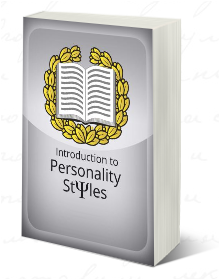Abusive Partner Test
You are here because one of your friends linked you to their Abusive Partner result:
Take the TestYour friend's relationship results:

This makes your friend's relationship 70.5% more abusive than the population average.
Take the TestExplanation of Facets:
Narcissism is an egotistical interest in one’s self. Narcissists tend to be excessively preoccupied with themselves and motivated by getting admiration from others and maintaining a grandiose sense of self. Because narcissists are so preoccupied with getting others to buy into their self-image, they may initially seem charming. But most narcissists have trouble developing real relationships on account of their difficulty with empathy and lack of genuine interest in others. As partners, narcissists often act in extremely entitled and self-centered ways.
Psychopathy is identified by the tell-tale sign of shallow emotional responses. The underdeveloped affect of psychopaths endows them with high stress tolerance, low empathy, and little guilt. It frequently also prompts them to seek out extreme situations with regard to sex, violence, drugs, or financial risk. People high on psychopathy are generally impulsive and rash, and tend to have a tendency to seek revenge against others who they feel have insulted them. Personality traits associated with psychopathy include cynicism and lack of emotion, as well as lack of remorse, antisocial behavior, volatility, and unpredictability.
Power-Dominance is characterized by a pattern of punitive and abusive behavior towards others. Inflexible and controlling, people who score high on Power-Dominance often feel that they must keep tabs on the people who are close to them and constantly make clear “who is boss.” Internally, people who score high on Power-Dominance are often beset by conflicting ideas about their own self-worth. They resolve these conflicts by inflicting physical or psychological pain on others in order to reinforce their sense of confidence and self-worth.
Jealousy-Control denotes the tendency to want to restrict the autonomy of one’s partner. It may manifest in behavior such as reluctance to letting one’s partner leave the house unaccompanied, see friends, or attend social functions. By isolating their partner from regular interactions with others, the Jealous-Controlling partner hopes to gain control over their partner by creating a private space in the relationship where they can get away with abusive behaviors that would not normally be tolerated in society.
Physical Intimidation refers to the whole spectrum of bodily mistreatment, from overtly violent behavior and sexual abuse to more subdued behaviors such as the invasion of personal space, intimidating stares, threatening body language, verbal threats, and the like. Being on the receiving end of physical abuse from a partner is often immensely intimidating, and partners who fall into a pattern of accepting physical abusive from their significant other often end up accepting a wide range of other mistreatment as well.
Psychological Coercion is a pattern of abusive behavior designed to demean and belittle one’s partner in order to make them feel worthless, embarrassed, and helpless. Examples may include disparaging comments about a partner’s weight, attractiveness, appearance, or intelligence. A person who has been subjected to long-term Psychological Coercion may find themselves altering or constricting their whole lifestyle, since their self-confidence has been sapped by someone who was supposed to support them but consistently chose to demean them instead.
References
The test was constructed on the basis of the following scientific studies:
- Ford-Gilboe M., Wathen C.N., Varcoe C., et al.: Development of a brief measure of intimate partner violence experiences: the Composite Abuse Scale (Revised) BMJ Open 2016
- Hardy Kimberly K.: Emotional Experiences and Frequency of Domestic Abuse Among Female and Male College Students Violence and Gender June 2016
- Hegarty, Kelsey; Bush, Robert; Sheehan, Mary: The Composite Abuse Scale: Further Development and Assessment of Reliability and Validity of a Multidimensional Partner Abuse Measure in Clinical Settings Violence and Victims Vol. 20, Issue 5 2005
- Loxton D, Powers J, Fitzgerald D, Forder P, Anderson A, et al.: The Community Composite Abuse Scale: Reliability and Validity of a Measure of Intimate Partner Violence in a Community Survey from the ALSWH Journal of Women’s Health, Issue 2:4 2013
GET THE FULL STORY
Become a lifetime member with a one-time payment
WHAT YOU GET
Access to premium, members-only tests
Access to all of our eBooks (value $44.94)
Access to 100s of premium articles
Access to 100s of premium type assessments
Access to premium infographics
New content continuously added
Become a memberGET THE FULL STORY
Manual of Personality Styles
WHAT YOU GET
71-page manual, explaining the make-up of all personality styles, their hidden drives, and the theory behind the system.
Presented in an easy-to-read style and backed up by solid academic references.
14-day, no-questions-asked, money-back guarantee.
Order Now
